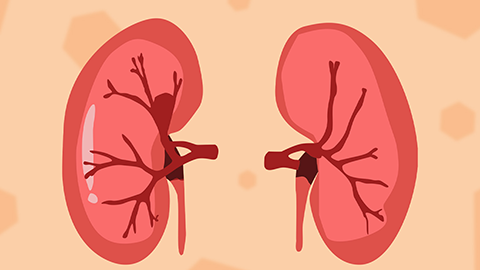What is the traditional Chinese medicine treatment for kidney disease?
Traditional Chinese Medicine (TCM) offers various treatments for kidney diseases, including oral herbal medicine, acupuncture regulation, acupoint massage, external herbal therapies, and dietary therapy. Treatment should be individualized based on the patient's specific syndrome pattern, emphasizing holistic regulation and addressing both root causes and symptoms. If symptoms such as edema, hematuria, or proteinuria occur, prompt medical evaluation and diagnosis are recommended.
1. Oral Herbal Medicine: Herbal formulas or proprietary Chinese medicines are selected according to the patient’s syndrome differentiation. For example, patients with internal damp-heat may take herbs that clear heat and resolve dampness, while those with spleen-kidney deficiency may use tonics to strengthen the spleen and nourish the kidneys. This approach aims to regulate organ function, eliminate pathogenic factors, support healthy qi, and improve kidney health.
2. Acupuncture Regulation: Key acupoints along the kidney and spleen meridians—such as Shenshu (BL23), Zusanli (ST36), and Sanyinjiao (SP6)—are stimulated through needle insertion or moxibustion to unblock meridians, harmonize qi and blood, and support improved kidney function.

3. Acupoint Massage: Regular massage of points such as Yongquan (KI1) and Taixi (KI3) can help nourish the kidneys, boost qi, and promote circulation. It is suitable for self-care during stable phases of the disease.
4. External Herbal Therapies: These include herbal steam therapy, foot baths with medicinal herbs, and acupoint application of herbal pastes. These methods allow medication to be absorbed through the skin, avoiding gastrointestinal irritation from oral intake, and help alleviate symptoms such as edema and fatigue.
5. Dietary Therapy: Diet should be tailored to the individual’s syndrome pattern. For example, patients with yang deficiency may benefit from warming foods like lamb and Chinese yam, while those with yin deficiency may consume nourishing foods such as lily bulbs and white fungus. Spicy, raw, cold, and high-salt foods should be avoided.
Daily lifestyle recommendations include maintaining regular作息 (daily routines), avoiding late nights, engaging in mild exercises such as walking, managing emotional well-being, strictly limiting salt intake, and avoiding excessive physical strain—all of which support the effectiveness of TCM treatment.






